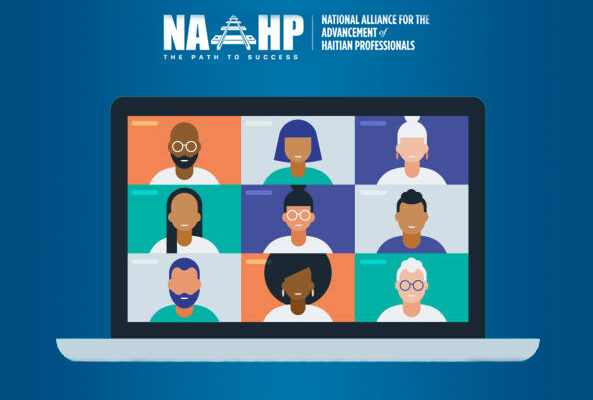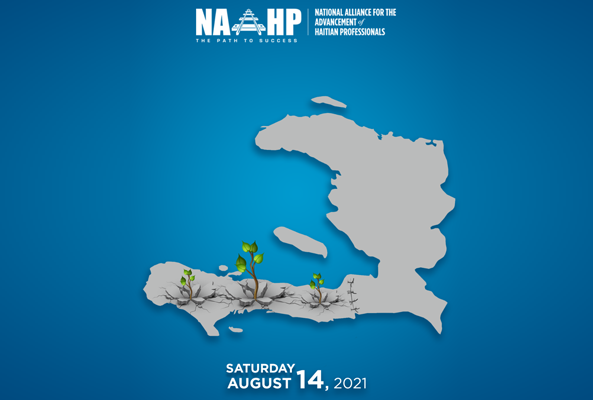
Using Technology to Bridge Learning Gaps
Did you know that only 79% of Haitians in the United States have a high school degree or higher? Immigrant families often carry the aspirations of their ancestors. In a previous article, “The Journey Is On,” Dr. Daphney Chery wrote about how she felt the pressure to become a medical doctor like her parents wanted. This is a common narrative among children of Haitian immigrants who hope to fulfill the hopes of their lineage.
Education stands as a powerful equalizer for these families, opening doors to opportunities that were previously out of reach. Yet, only 19% of Haitian immigrants have a bachelor’s degree—a massive drop from the number of Haitians with a high school diploma. It is vital that we explore solutions to break down barriers and bridge learning gaps for first-generation immigrant children. One of these critical solutions is technology.
Learning gaps and technology
Language learning apps
English proficiency often requires five to seven years of studying to communicate effectively in academic settings. During this time, language barriers can pose a significant challenge for immigrant children, affecting their ability to excel academically.
In this case, language learning apps can provide an engaging way for Haitian students to improve their English language skills. For instance, Duolingo offers lessons tailored to various proficiency levels and learning styles. They’ve even partnered with the IRC to expand access to fee waivers for those newly arrived in the US. By enhancing their language proficiency, students can bridge the gap between their cultural background and the US educational system.
Online learning platforms
Online learning platforms have revolutionized education by providing flexible learning experiences. These sites offer Haitian immigrant students the chance to upskill and explore subjects not comprehensively covered in traditional classrooms.
Platforms like Coursera provide various courses, from basic math and language skills, and offer entry-level professional certificates. This allows students to access high-quality educational content for free or at a fraction of the cost of traditional education.
Virtual tutoring

Studying in a new country can be overwhelming, especially when students face challenges understanding the coursework. While online learning platforms can help supplement learning, 2021 research in the journal Migraciones Internacionales still highlights a tutor as a decisive aid for Haitian migrants to integrate and excel in higher education institutions successfully.
Having a private mentor allows Haitian immigrant students to clarify concepts and receive personalized guidance. Virtual platforms such as Chegg Tutors can connect students with qualified tutors who can provide one-on-one assistance in various subjects.
Moving forward
As we delve deeper into the digital age, the demands of the job market continue to evolve rapidly. This begs an important question: With our current learning gaps, are our students truly empowered to thrive in their future careers?
Recruiters and human resources professionals are becoming increasingly discerning when it comes to the qualifications they seek in applicants. Recruitment solutions help build talented teams based on skill capacity and diversity, with apps and specialized consultants screening every application to match different professional industries. This shift means that students must pay close attention to developing the competencies that can set them apart.
Beyond soft skills such as communication, a strong foundation in technology is indispensable in today’s job market. This goes beyond basic computer literacy. For Haitian immigrant students, gaining proficiency in software applications, data analysis tools, and even programming languages can significantly enhance their employability.
Specialized skills related to artificial intelligence (AI) and machine learning are in high demand across various industries. In fact, proficiency in ChatGPT is the latest in-demand job skill. ChangeEngine CEO Andrew Higashi explains that AI will become more integrated into various industries, including retail and marketing, so AI skills will become a necessity for future job seekers.
Work Package 9 of the MIDEQ hub notes that most migrants from Haiti already focus on the use of digital tech for increasing economic well-being. Now, what’s left to do is redirect immigrant students to using technology to bridge learning gaps and upskill. For more on Haiti and its global diaspora, check out our other blogs on the National Alliance for the Advancement of Haitian Professionals.

 English
English Français
Français Donate
Donate Partner
Partner Shop
Shop Login
Login










